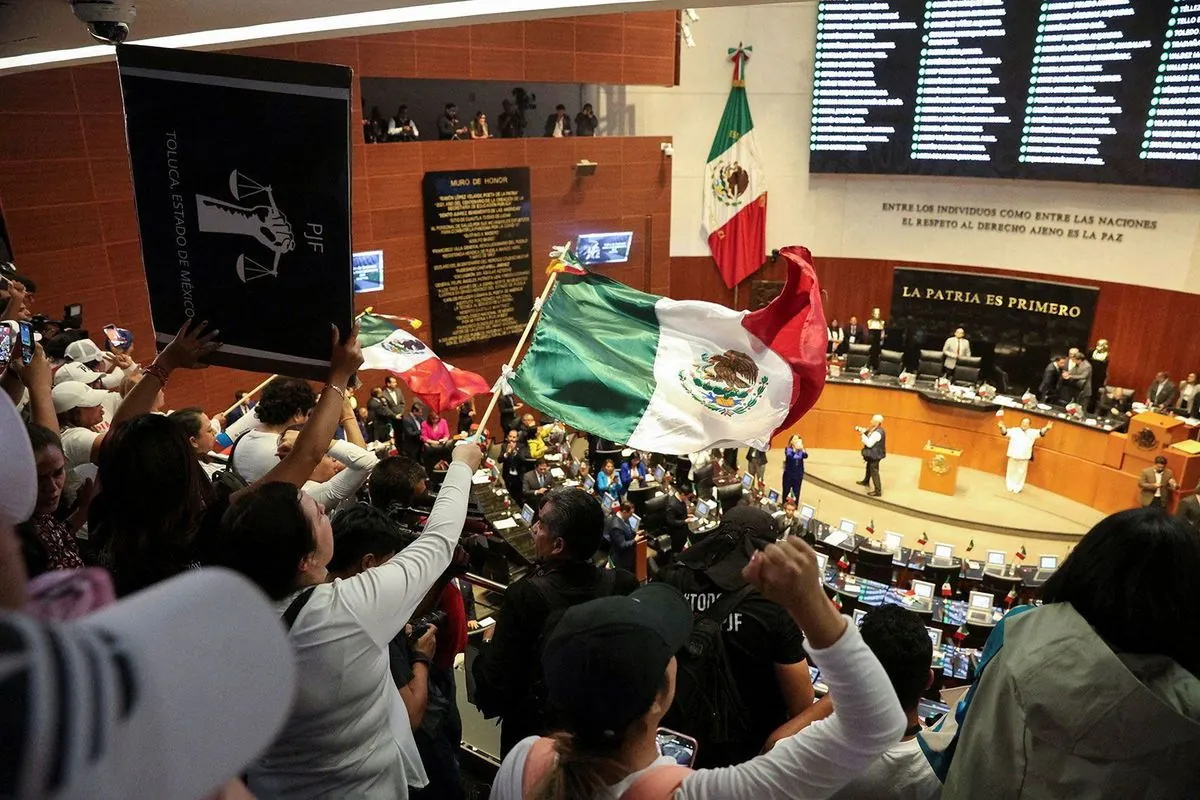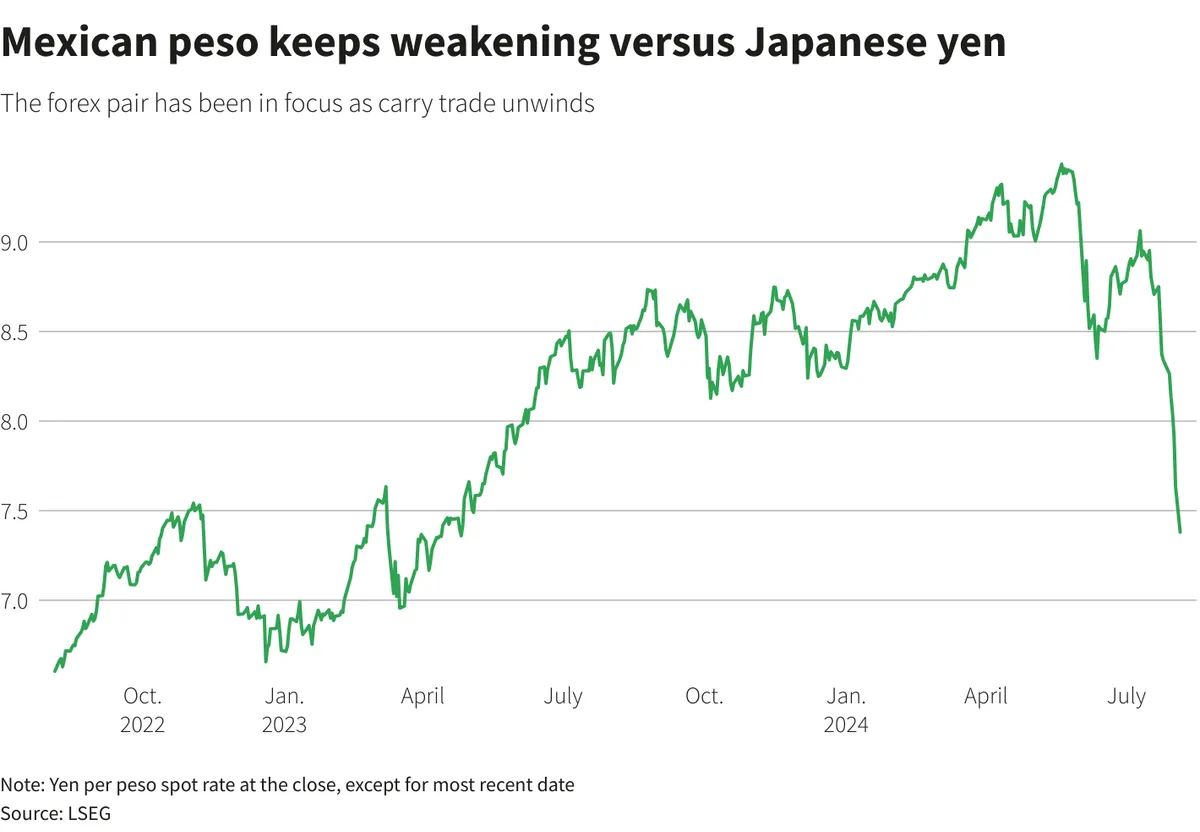Mexico Senate Approves Controversial Judicial Reform Amid Protests
Mexico's Senate has given general approval to a sweeping judicial reform, allowing judges to be elected by popular vote. The move has sparked concerns about rule of law and economic impacts.

In a significant development, Mexico's Senate has granted general approval to a comprehensive judicial reform, marking a profound transformation in the country's legal system. The reform, which passed with 86 votes in favor and 41 against, introduces the concept of electing judges through popular vote, a move that has sparked intense debate and concern among various stakeholders.
The reform, proposed by outgoing President Andres Manuel Lopez Obrador, has already passed the lower house and is now moving to the final stages of approval in the Senate. This legislative action comes as part of a broader initiative to overhaul Mexico's judiciary, which has been in place since the country's current constitution was enacted in 1917 following the Mexican Revolution.
Critics of the reform express apprehension about its potential impact on the rule of law and the economy. The United States and Canada, Mexico's major trading partners under the USMCA (which replaced NAFTA in 2020), have voiced concerns that the overhaul could undermine the trade pact and negatively affect investment. This is particularly significant given that Mexico is the 15th largest economy globally by nominal GDP and the second-largest in Latin America after Brazil.

The financial markets have reacted negatively to the proposed changes, with the Mexican peso, the 15th most traded currency worldwide, weakening by 17% since the June 2, 2024 elections that saw the ruling Morena party secure a landslide victory. This economic uncertainty adds to the challenges facing the incoming president, who will take office on October 2, 2024.
The reform includes several key changes to the structure of Mexico's judiciary:
- Popular election of over 6,500 judges and magistrates, including Supreme Court justices
- Reduction of Supreme Court judges from 11 to 9
- Shortening of judicial terms to 12 years
- Elimination of the minimum age requirement of 35 for judges
- Halving of necessary work experience to 5 years
These changes represent a significant shift from the current system, which has been in place since the last major judicial reform in 1994. The Supreme Court of Justice of the Nation, established in 1824, will undergo substantial modifications under this new legislation.
"This reform is vital to maintaining the integrity of Mexico's judiciary and ensuring it serves the people rather than criminal interests."
However, critics argue that the reform could lead to an alarming concentration of power by the ruling Morena party. The opposition has accused the ruling bloc of employing underhand tactics to secure the necessary votes, allegations which Morena has denied.
The reform's approval process has not been without incident. During the Senate session, demonstrators broke into the building, waving Mexican flags and shouting "traitors," forcing a temporary pause in proceedings. This unrest reflects the deep divisions and concerns surrounding the proposed changes to Mexico's legal system, which combines elements of US constitutional theory and civil law.
As Mexico moves forward with this controversial reform, the incoming president will face the challenging task of managing its implementation and addressing the concerns of both domestic and international stakeholders. The reform's impact on Mexico's economy, its relationships with trading partners, and the integrity of its legal system will be closely watched in the coming months and years.


































